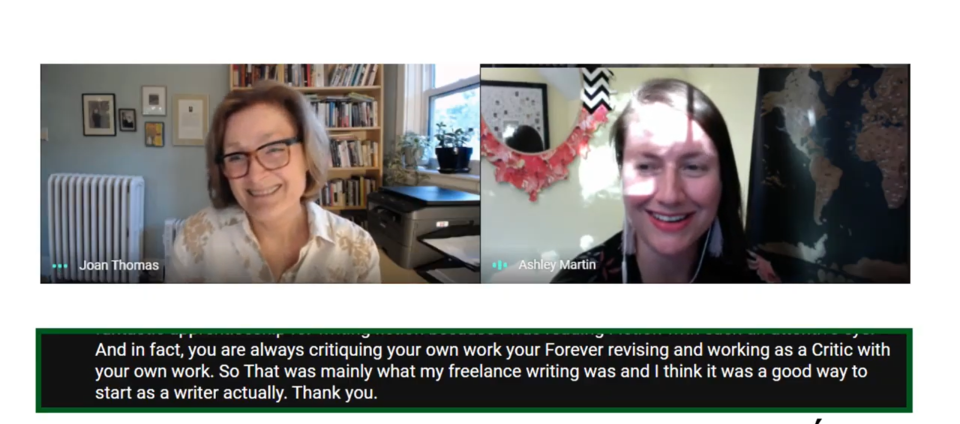Historical fiction writer Joan Thomas hosted an informative workshop at this year’s Festival of Words on the ins and outs of writing stories that use real events as a basis, including her approach to research and imagination.
Thomas spoke candidly about how the process relates to her most recent novel Five Wives, which is based on accounts of a group of missionaries’ attempt to contact an isolated indigenous nation in Ecuador in 1956, and her 2010 book Curiosity, which is about a girl who dug up a dinosaur skeleton in England in 1812.
Thomas began by talking about what often drives writers to approach stories based in history and facts, including the sparkle of a natural hook for readers and the already built-in framework of the narrative.
But there’s also an interest in telling stories that perhaps were silenced at the time of the events, said Thomas, as well as the writer’s attachment and interest in a story.
Finding a factual story interesting is, unsurprisingly, key to approaching historical fiction writing as the process requires a lot of research, which Thomas encourages writers to look at with rose-coloured glasses.
“It might be the most fun you’ve ever had in your life, without a glass of wine in hand,” said Thomas. “You're in love with your subject and you’re finding new things that add colour to it.”
Thomas’s process involves a lot of research, reading about and around her topic or event of interest before attempting to draft a fiction narrative within the facts.
For Thomas and most other writers like her, this is because approaching a story that is true requires a certain kind of balance between adherence to what is factual and exploration of what is missing from the real story.
“We are always after the truth, as fiction writers, but we may have a different grasp of where the truth lies,” she said. “But you will have to determine for yourself what your parameters are [on what stories you will approach].”
In writing historical fiction, said Thomas, writers have to make decisions such as creating entirely new characters to create tension in the plot, deciding how era-accurate the language needs to be, and whether they will change the names of real people for any reason.
Another challenge is fictionalizing real people, which Thomas said often requires what she called “reverse-engineering personalities” using real facts that are available.
During the workshop, Thomas was asked about the responsibility of historical fiction writers when portraying facts and real events, which Thomas addressed in a few different ways.
“I think all of us really have to confront this question at a rather deep level as we write, and that is because we play a huge role as fiction writers in how people think about the world [and] the way they think about the past,” said Thomas.
Often, historical writers expand, embellish, and take liberties with the factual narrative to better explore the deeper fictional narrative, said Thomas.
“In some instances, you are revising details in service of the greater truth,” she said.
She also spoke about the importance of setting parameters regarding what kind of historical events or stories feel comfortable to fictionalize. Most writers agree that there should be some distance of time between the events and writing the fictionalized story, and that writing about people who are still alive can pose a concern, out of respect.
For Thomas in writing her latest novel, she also had to consider the importance of the narrative she wanted to share and whether she was the person to approach that narrative.
“I thought a lot about this [for Five Wives] because I thought, ‘do we need another story from the point of view of white North Americans?’ but I knew my story would interrogate the old story and it would be different,” said Thomas. “But I would never have written the story of the Huaorani people and I would say their story is a far more important one.”
Thomas also shared that she is currently working on a new manuscript, which she described as contemporary and possibly set in the current year rather than in the past.
The Festival of Words continues until July 19, with a full schedule of events available here.
Stay tuned for coverage of the festival as it progresses through the week.




